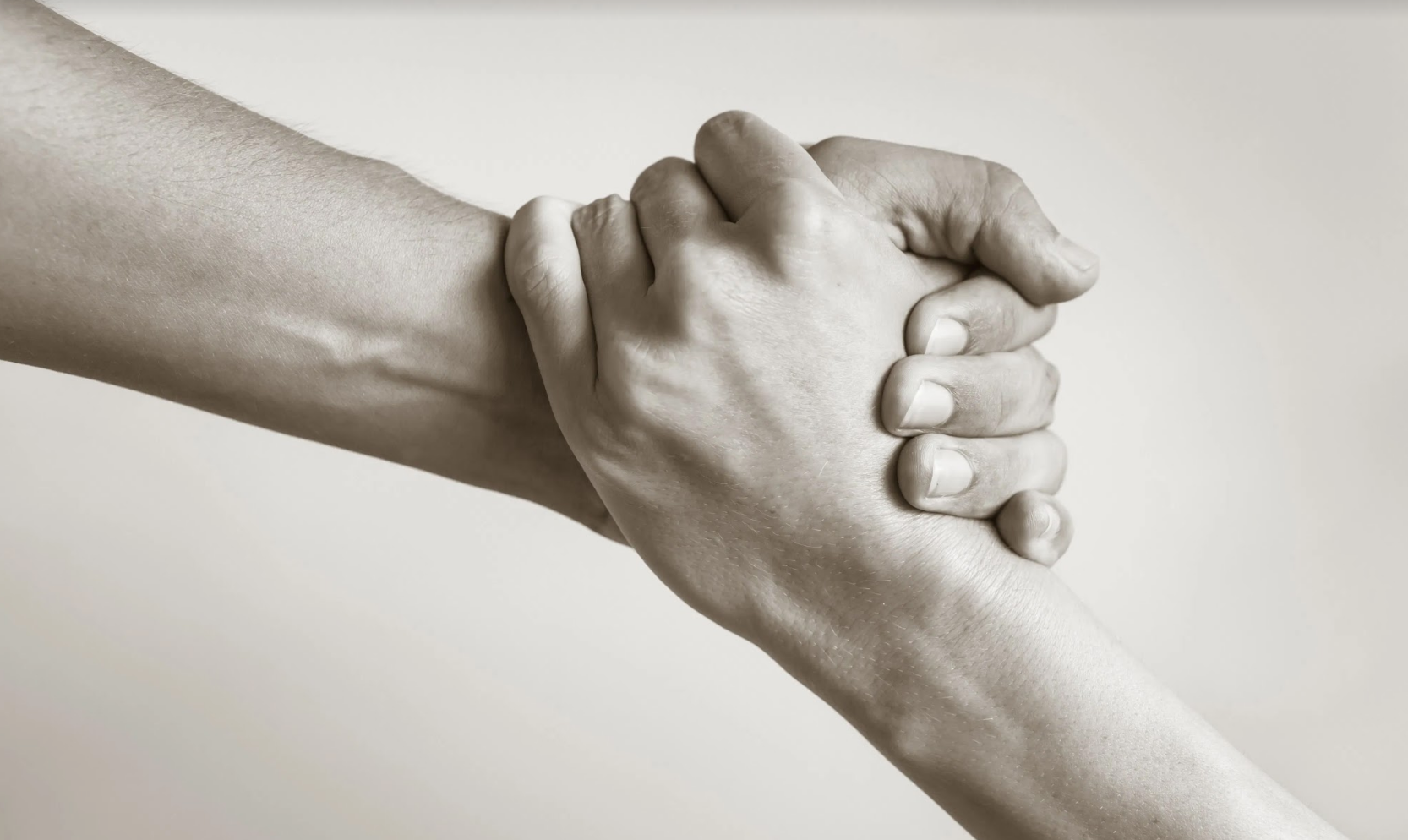When a local box owner asked me if I was interested in coaching the competitor’s program at his gym, I laughed. Out loud.
“You’ve never even seen me coach,” I said. “How do you even know if I’m any good?`”
“You’re a Games athlete Emily,” he said emphatically, as if this somehow automatically makes me a qualified to coach competitive athletes.
Truthfully, I do coach CrossFit. And I think I’m pretty good at helping my clients get their first pull-up, teaching them the basics of a clean and a jerk, and generally just shooting the shit and listening to their athletic fears and worries. But a competitive CrossFit coach, I am not.
I don’t program for myself, and I’m not the type to geek-out for hours on Juggernaut, or Catalyst. I don’t spend my evening hours watching Kelly Starrett videos, or reading about the latest programming trends and philosophies in the sport of CrossFit.
Yet time and time again, people approach me with questions that would be better off fielded to the likes of CJ Martin or Doug Chapman.
CJ Martin, CrossFit Invictus head coach, has dedicated his life to helping his athletes reach an elite level, but hasn't pursued the venture on his own. We don't think anyone would argue his lack of personal experience as a Games athlete makes him less equipped to coach elite competitors. Photo: The Rx Review
And when I started digging a little deeper into the issue, it turns out others agree there is a misconception that is deeply-entrenched in the CrossFit community that assumes competitive athletes automatically know how to coach.
If you think about it, it’s a bit of a slap in the face to all the great coaches out there—the ones who do devote their lives to reading, researching, agonizing, dabbling and fine-tuning their skills—and who often coach high-level athletes for very little pay.
Doug Chapman’s Take
Doug Chapman, two-time CrossFit Games podium finisher Julie Foucher’s personal coach, said—generally speaking—the best athletes don’t make the best coaches. Just because they know how to do a skill doesn’t mean they’re adept at teaching it, he explained. Chapman doesn’t think this is specific to CrossFit, though.

After an Achilles tendon rupture at the 2015 Central Regional, Julie Foucher has ended her career as a Games athlete to pursue her medical degree. This October she released her new programming, TRAIN, available on her website. Is it possible for her to see more success as a coach than she did as an athlete? Photo: juliefoucher.com
“If you think about it, look at the NFL or hockey players, it’s more an exception than a rule that a good athlete becomes a good coach. It’s very rare,” Chapman said.
Chapman—who also works with many other CrossFit Games athletes, including Chyna Cho, Lindsay Valenzuela, Jacob Heppner, and most recently Camille-Leblanc Bazinet—said he often sees aspiring Regionals athletes turning to higher-level athletes for programming advice. A big mistake, he said.
“A lot of top athletes keep getting asked programming advice, but the best athletes don’t program for themselves. The ones who do tend to have a huge variance in their performance,” Chapman said.
Alex Parker, who competed at her first CrossFit Games this summer and coaches classes once a week at Champ City CrossFit, can relate:
“(I don’t coach anyone) elite because I have no idea what I’m doing in regards to programming,” Parker said. “I just do what Mike (Fitzgerald) tells me.”
Stephen Wallace’s Take
Stephen Wallace is a Blonyx ambassaor who is also a Regionals competitor and coach.
He said he understands why people look to Regionals and Games-level athletes for coaching.
“I think a lot of people gravitate towards the people who have had success in the sport, since it is a training style full of athletes (who are) generally competitive and goal-driven individuals,” said Wallace, who is coached by Justin Thacker of the Lab Gym in St. Louis, Missouri.
Stephen Wallace is one of the strongest guys in the sport. It must be challenging to coach someone with a 570 back squat, a 385 clean and jerk, and a 315 snatch, but his coach Justin Thacker knows how to balance out Wallace's training with his weaknesses.
“If you are told something by someone who can do it effectively the same way they are coaching you to do the movement, you are more inclined to have faith in them,” he said. “If I were taught something by a slob who I know couldn’t get on top of a set of rings…I probably wouldn’t trust him or her to teach me my first muscle-up.”
That being said, Wallace recognizes that good athlete doesn’t equal good coach.
“If you can do 20 unbroken muscle-ups, or a 400-llb. clean, but can’t convey the pointers of the movement in the way the athlete can understand, then you’re not coaching effectively,” he said.
Investing the Time and Energy
Blonyx ambassador Rob Lawson—owner of CrossFit Aberdeen in Scotland and well-known CrossFit Level 1 Seminar staff coach—has taught his fair share of budding CrossFit coaches over the years. He believes the top coaches of the sport need to possess the same kind of passion for coaching as elite-level athletes do for training and competing.
“I believe there are coaches out there who are solely focused on getting their athletes to Regionals or the Games,” he said, adding this trait is a necessary requirement considering how competitive the sport of CrossFit has become.
Wallace explained that—as a Regionals athlete—this is exactly what he looks for in a coach: Someone who has the time and energy to truly invest in him as an athlete.
“They must desire my progress just as seriously as I do,” Wallace said.
The latter is exactly why Chapman doesn’t believe Regionals or Games-level athletes make great coaches: They’re so invested in their own progress, and they simply don’t have the time to devote the energy required to program for or coach another top-level athlete.
“All the athletes I coach are working out four-and-a-half hours a day, so if they need to coach for another three hours, they’re probably not going to do that well,” Chapman said. “I prefer if my athletes don’t work, actually.”
Chapman said he would never hire a Games athlete to coach full-time at his gym.
“Well, unless they’re retired, maybe,” he added with a laugh.
Where Top-Level Athletes Can Help
Despite Lawson’s skepticism about being able to simultaneously be a high-level athlete and a coach for a high-level athlete, he said Regionals and Games athletes can still provide value to aspiring up-and-comers. This value comes in the form of mentorship, as opposed to coaching.
Games rookie Maddy Myers and veteran Regan Huckaby, both Invictus athletes have one of the best mentor-men-tee relationships in CrossFit.
“Top level athletes have been in these difficult competition situations and have experience to share,” Lawson said. Regionals and Games athletes have a lot to teach others about the mental side of the sport, he added.
When Lawson played rugby, new members of the squad were often paired up with a veteran on the team, who would essentially act as a mentor to the rookie, he explained.
“The new member would live with or train with the veteran and would learn a lot from (the arrangement,)” he said.
Similarly, Lawson believes aspiring Regionals or Games athletes can learn a lot from using a more senior CrossFit athlete as a mentor.
“It comes down to competition experience,” he said. “And sharing that knowledge.”



